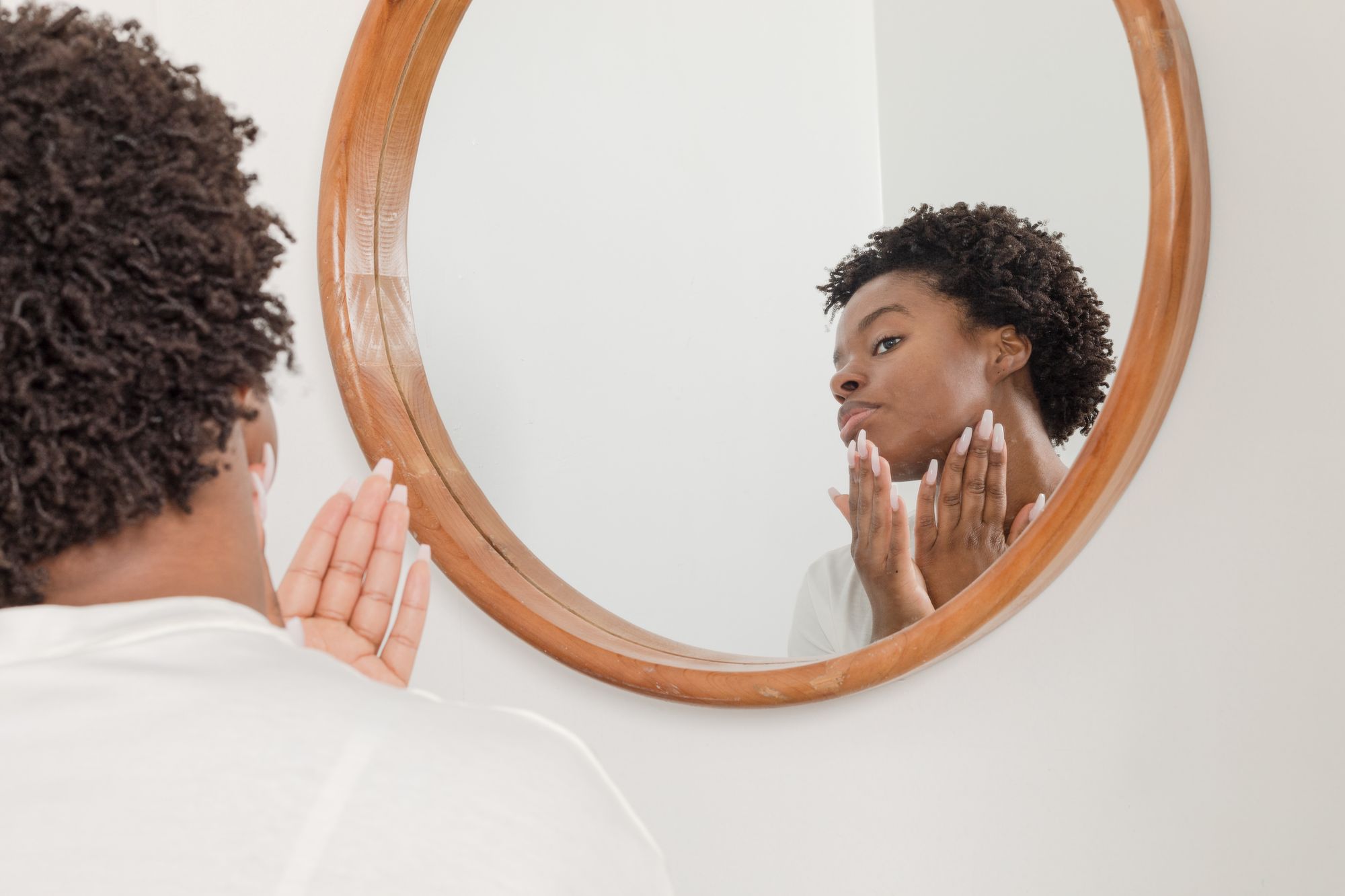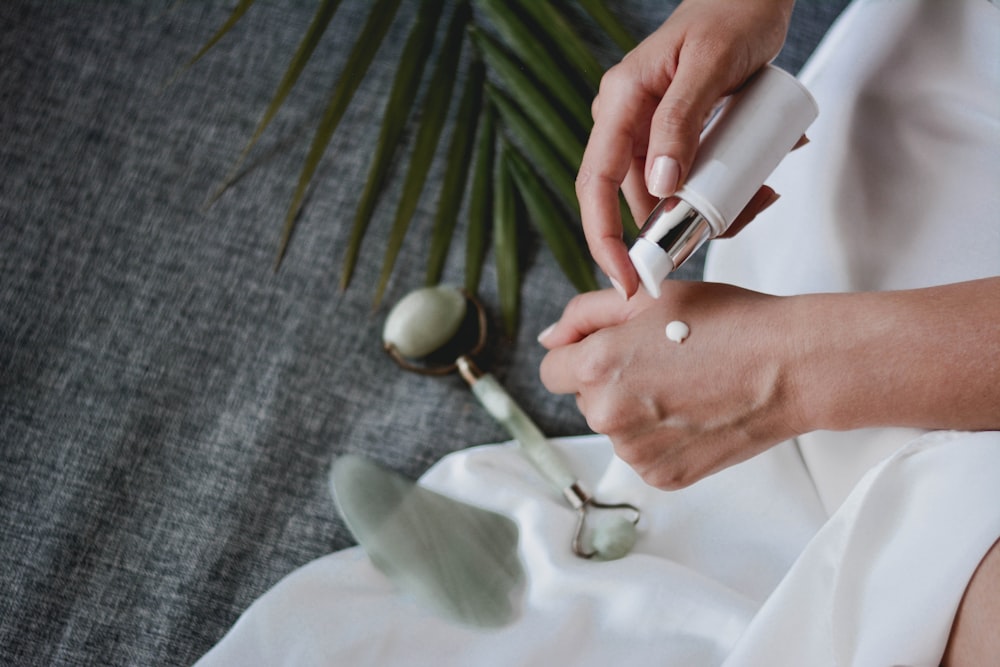
Creating your own customized skincare routine is an important self-care trend. Skincare routines are definitely not one-size-fits-all. Skincare products that give other people glowing, clear skin might leave your skin irritated and red. With the various skincare products lining the shelves, figuring out the right skincare products for your skin can take a while. It might take some trial-and-error. Don’t despair, as the journey toward perfecting your skincare routine can be a fun one. Below, we’ll explore some tips for you to narrow down your hunt for the perfect skincare routine.
Know Your Skin Type
Different people have different skin types, and different genetic skin traits. The foundation of building the perfect skincare routine is to get to know your skin type. Knowing your skin type can help you narrow down the types of skincare products to look at.
Dry skin: Flaky, rough to the touch.
Oily skin: Your skin is always shiny and greasy, and you might have enlarged pores.
Combination skin: Certain spots on your face are dry while other areas such as nose and forehead are oily.
Normal skin: Balanced, clear, not sensitive and does not react to different types of skincare products.
Sensitive skin: Your skin tends to react when you use the wrong skincare products. Symptoms of reaction include stinging, burning, itching and redness

Understanding How Your DNA Impacts the Appearance and Health of Your Skin
Our genetics are a significant determining factor when it comes to how we look and age. A CircleDNA test can determine your genetic skin traits, your skin age, acne risk, and how prone you are to wrinkles and stretch marks. Based on these genetic insights, you can take proactive measures to nurture and maintain your skin health.
Day or Night Skincare Products?
Read the ingredient label carefully to determine when to apply your skincare products. Some ingredients are useful no matter when you put it on, while others are more effective when applied at designated times. For example, retinoids are best used at night when your skin is repairing itself.
Check the Ingredient Label
Run your skincare products through an ingredient analyzer to make sure you are not rubbing toxic chemicals onto the most sensitive part of your body. Ingredient analyzers such as 1Source, and EWG can help rate the safety of skincare and cosmetic products as well as alert you of any toxic or cancerous ingredients in your skincare products.
7 Essential Skincare Steps
From eye creams to serums and face masks, it’s easy to get lost in the sea of skincare products. So, let’s return to the essential steps. No matter your skin type, start your skincare routine with the below 7 simple steps, designed to cleanse, treat, and moisturize.
1. Cleanser
Cleansing your face should always be the first step of your skincare routine. The goal of cleansing is to get rid of impurities and excess oil that clogs your pores. However, it is important to note that cleansing your face too much or using a cleanser that’s too harsh may strip off the healthy oils from your skin and break down the skin’s protective barrier. Instead, opt for a sulfate and soap free cleanser that’s gentle on your skin.
2. Exfoliant
It’s very important to exfoliate your skin regularly, especially if you have dry skin. You shouldn’t exfoliate every day, but aim for at least twice per week. Exfoliate your skin using a medical grade exfoliating polish meant for the face. Apply the exfoliating polish to your face using circular motions, avoiding the eye area. Do not use a body scrub on your face.
Exfoliating removes dead skin cells to reveal the smoother, brighter and younger-looking skin underneath. You’ll notice that your moisturizer, sunscreen, makeup primer and makeup goes on a lot smoother and easier when you’ve just exfoliated your skin.
3. Toner
Toners are a water based skin care liquid that is designed to make sure your skin is clean and to remove any other residual impurities. Furthermore, toners also boost an extra dose of active ingredients that can refresh the skin.

4. Serum
Serums are used to address several types of skin conditions. Concentrated amounts of powerful ingredients are delivered to the skin to treat complexion issues from wrinkles to dark spots. Different types of skin issues you want to address will require different types of serums. However, one serum everyone can benefit from is an antioxidant serum which prevents the formation of free radicals and reduces the signs of aging.
5. Eye Cream
Eye creams are formulated for the thin skin of your eyelids. If you’re concerned about fine lines, wrinkles, and dark circles under your eyes, this treatment is perfect for you. To treat different issues, use different eye creams. As a rule of thumb, vitamin C helps with puffiness, while retinol helps with wrinkles, and vitamin K helps with dark undereye circles.
6. Moisturizer
Moisturizers help keep the skin soft and hydrated, giving the skin its plump, youthful appearance. Keep a lookout for ingredients such as ceramides and hyaluronic acid, which are crucial in helping skin retain moisture. For those with oily or acne prone skin, opt for a lighter moisturizer such as lotion or gel.
7. Sunscreen
The sun is the number one culprit that speeds up skin aging. UV rays from the sun damage the skin and in severe cases, could cause skin cancer. Make sure to apply sunscreen before you leave the house. Don’t overlook your neck and the back of your hands.
Stick to Your Routine
Figuring out the perfect skincare routine can take a while. Even the best skincare products take time to work their magic. Don’t expect to see results overnight. Just be consistent. If you religiously stick to a skincare routine, you can see some changes in your skin in 2-3 months. Lastly, have fun with it. Treat your skincare routine as a self-care activity, and invest in high-quality skincare products.







This Post Has 2 Comments
Comments are closed.